How a Pentecostal preacher in Kenya persuaded hundreds of worshipers to starve themselves — and their children — to death.
Read: The Dial [The Pundits Issue]
How a Pentecostal preacher in Kenya persuaded hundreds of worshipers to starve themselves — and their children — to death.
Read: The Dial [The Pundits Issue]
After Uganda passed what became known as the “kill the gays” bill, hundreds of LGBT Ugandans began fleeing across the border to Kenya, where they lived in hiding while applying for asylum—but a few Kenyans, like Lucas, fled in the other direction.
Read: Harper’s Magazine
In 2007, the Bill & Melinda Gates Foundation announced an ambitious endeavor: To eradicate malaria across the globe.
It was late to the game. That year, Chinese scientists working with a Chinese philanthropist had already begun eradicating malaria from the small African nation of Comoros. Now they’re setting their sights on a more ambitious location: Kenya, the East African nation of nearly 50 million people.
Read: The Atlantic

Listen: The China Africa Podcast
The plight of Kenya’s LGBT Refugees
“God has a book of life,” Mugisa told his worshipers. “He remembers your name. But to be written in this book you need to do good.” Mugisa turned to his congregants. “Mulondo, Lujja, Kasule, Nansamba: You want to be able to say, ‘God, I served you when I was in Kakuma camp.’ You want to be able to say, ‘I served you in Uganda. Remember me. This is what I have done, remember me.'”
Mugisa glanced around his congregation of LGBT worshipers, catching the eyes of a few of them. Unable to ignore the trepidation on their faces, he comforted them. “Trust me—one day we will be out of this place.”
Honorable Mention (runner-up), 2016 Immigration Journalism Award, The French-American Foundation; Official Nomination, “Outstanding Magazine Article,” 2017 GLAAD Media Awards; Shortlist, 2017 One World Media Print Award.
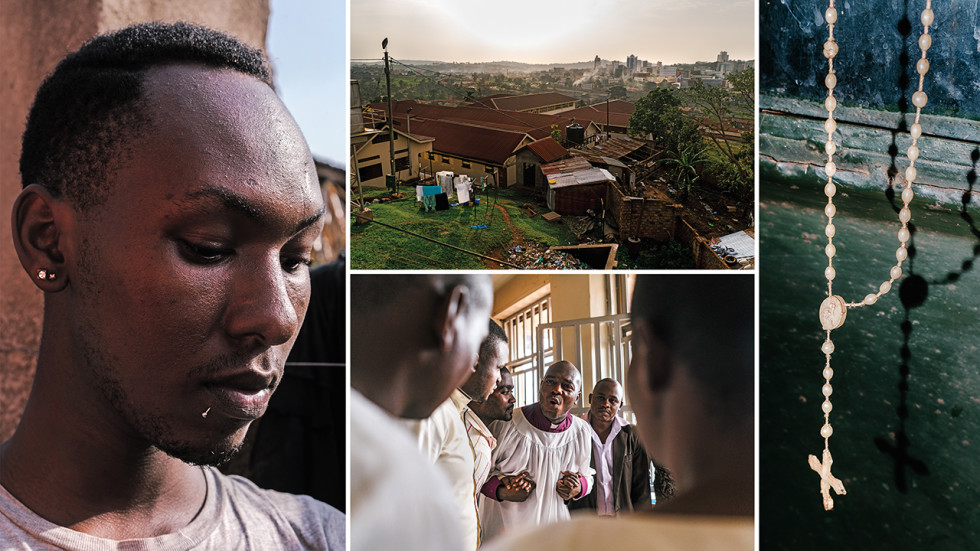
Photos by Jake Naughton

Inside the Fight for a Queer Country
Just a few years ago, Kampala was a nightmare for LGBTQ Ugandans, some of whom were beaten and stripped in the streets, chased by angry mobs or jailed.
But you wouldn’t guess that from the relaxed atmosphere at Cayenne on Kampala’s north side. Few people seem to notice the transgender woman dancing by the pool, and if they do, they don’t seem to care. Javan belongs to a generation of queer Ugandans barely old enough to remember when the antigay fervor first erupted here, in 2009.
Biologists Could Soon Resurrect Extinct Species. But Should They?
“Until we make space for other species on Earth, it won’t matter how many animals we resurrect,” writes M.R. O’Connor in her book Resurrection Science. “There won’t be many places left for them to exist.”
“Paradoxically, the more we intervene to save species, the less wild they often become.”
Read: WIRED
As dawn breaks, nine Kenya Wildlife Service rangers dressed in camouflage and brandishing rifles assemble at an airstrip. They are equipped with a Cessna, a helicopter, and a caravan of Toyota Land Cruisers. Their mission: find, tranquilize, and collar Tsavo’s savanna elephants to see how well they traverse a new rail line that has recently split their habitat in two. It is the first time in history that elephants are being collared specifically to study how they interact with human infrastructure.
In northern Kenya, researchers are working to prevent a dangerous coronavirus – MERS – from jumping from camels to humans. But climate change is complicating their task.
Part of our BBC Future series, Stopping The Next One, with Harriet Constable and The Pulitzer Center.
READ: BBC

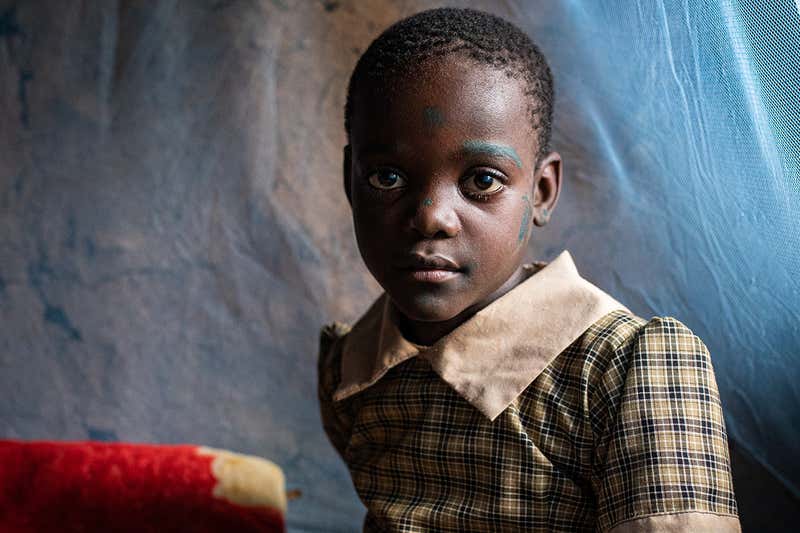
Eight-year-old Trizah Makungu sits on the bed she shares with her parents, protected by a mosquito net. These nets, which cost about $5 in the local market, have helped save millions of lives. / Lena Mucha
While most of the world is focusing on new vaccines for the coronavirus, thousands of Kenyan children are finally receiving a longed-for malaria vaccine, 37 years after development on it started.
Read: New Scientist
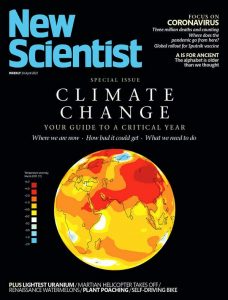 May 1, 2021 edition
May 1, 2021 edition
With Support from the European Journalism Centre
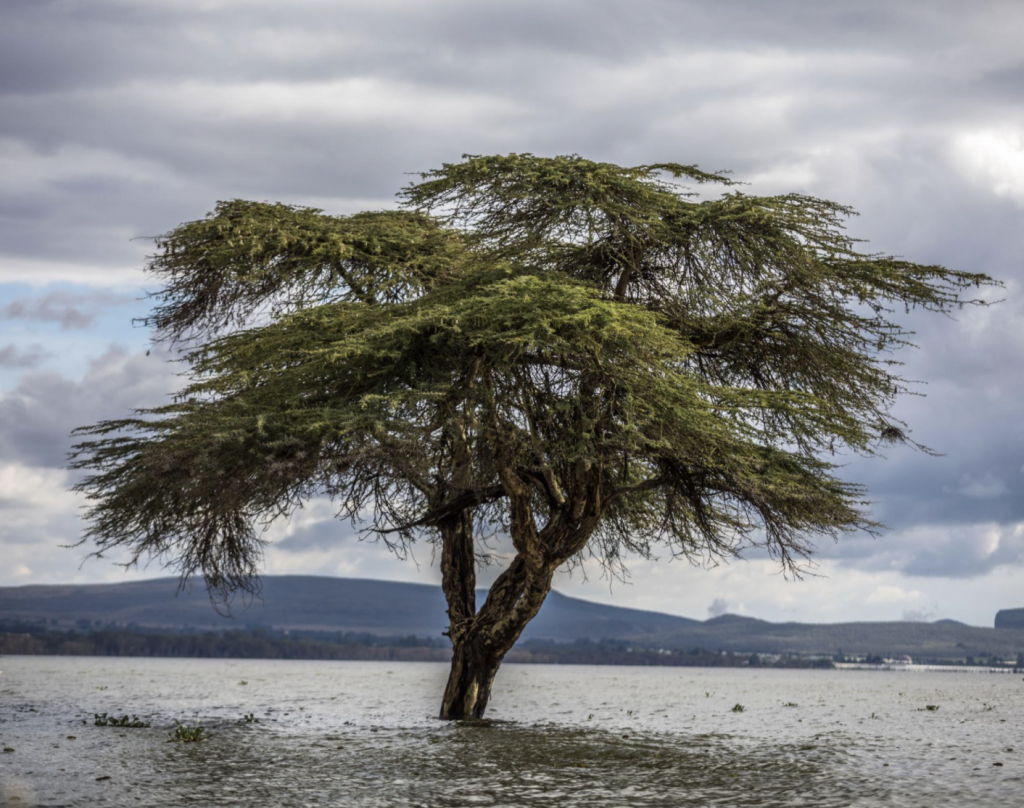

Floods and the economic fallout from COVID-19 are pitting hungry fishermen against hungry hippos—with deadly results.
Read: English | Spanish | Portuguese
Photos by Brian Otieno.
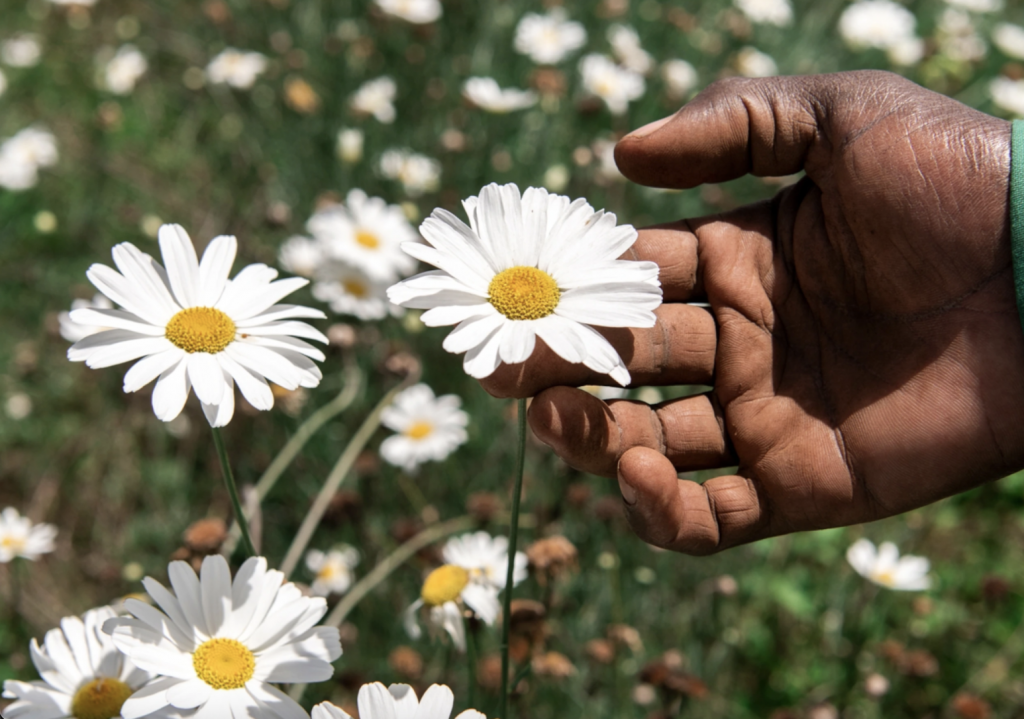
Pyrethrum contains a potent chemical that is made into an environmentally friendly insecticide. Photos by Vito Fusco
GILGIL, KENYA–The deadliest flower in the insect world is soft to the touch. Each morning in the hills above Kenya’s Great Rift Valley, the white petals of the pyrethrum plant become laden with dew. To the people who pick them, the flower is utterly harmless. But bugs beware: Its yellow center contains a natural toxin that can kill them in seconds.
Read: National Geographic
Drive along the dusty dirt road that winds through Kenya’s Hell’s Gate National park, past the zebra, gazelles and giraffes, and you’ll see a plume of steam shooting skyward in the distance. Vehicles must sometimes swerve to avoid running over warthogs as they enter a vast valley dotted with dozens of steam vents – a factory of clouds.
Blasts of steam billow loudly, releasing heat from deep within the Earth. But even more powerful is the steam you don’t see: that which twists through miles of tubes to push past turbines, generating a type of clean energy that won’t run out for millions of years.
Read: BBC Full Steam Ahead
Photography for BBC, The Coronavirus 10 Times Deadlier than Covid-19. Part of the Pulitzer Center-supported series, Stopping The Next One.

Kenya has become a safe haven for scores of refugees fleeing war and famine in neighboring countries. But that sense of sanctuary doesn’t always stand true if you’re young, vulnerable and gay. In secret hideaways and temporary homes, LGBT refugees are being forced yet again to hide their true selves.